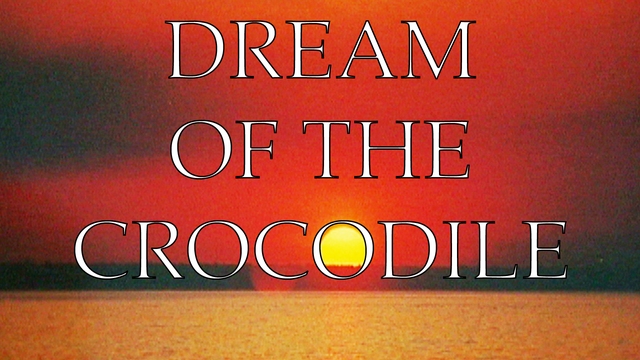Dream of the Crocodile
This beautifully shot and high quality documentary tells the incredible tale of East Timor's struggle for self-government.
 Leader of the world's newest country, Xanana Gusmao, really knows about fighting for freedom and democracy. He became the symbol of East Timor's fight for freedom when he masterminded the campaign that led to independence. This week's documentary is the moving account of how he succeeded, from the birth of the guerrilla movement to the bloody aftermath.
Leader of the world's newest country, Xanana Gusmao, really knows about fighting for freedom and democracy. He became the symbol of East Timor's fight for freedom when he masterminded the campaign that led to independence. This week's documentary is the moving account of how he succeeded, from the birth of the guerrilla movement to the bloody aftermath.
At a street festival in East Timor, the crowd dance and cheer, celebrating with their new president, Xanana Gusmao. But the voices soon turn to silence as Gusmao stands up and calls for a minute's reflection to honour fallen comrades. Understandably, the past still casts a long shadow over the present in East Timor. 200,000 people died during the 25 years of Indonesian occupation. Even now, there is still a great deal of mistrust.
The struggle for independence has lasted longer than the Indonesian occupation. During the 1970s, the independence movement virtually came to control the entire country. Faced with such blatant defiance, the Indonesians launched a period of violent repression which nearly crushed the struggle for freedom. It was in these circumstances that the new leader, Xanana Gusmao, launched a new policy based around flexibility and pragmatism. He recognised that the Indonesian forces could overpower them and allowed rebels to surrender and return home on the understanding that they would carry on the struggle in their hearts and minds.
His policy paid off. Surrendered soldiers and civilian sympathisers came to form the bastion of the clandestine front. "If the Indonesians gave us 10 bullets, we would use 4 and the rest would be for our comrades in the jungle," explains one member. People allowed the independence fighters to use their homes as storehouses, sheltering guns, ammunition and providing a safe refuge for leaders. "We had a structure that ran from the centre of operations in Dili, through the districts and even to the villages," explains resistance veteran Virgilio Smith.
This network was so successful that it enabled Gusmao to continue directing the campaign after he was imprisoned in Indonesia. "We transformed the prison to cater for our clandestine activities, to continue and maintain our communications with the outside world and to keep the flame of our struggle of resistance alive," says João Câmara. The network even encouraged the Indonesians to agree to a referendum after sympathisers working in key positions in the polling booths persuaded them that 90% of the voters favoured remaining part of Indonesia.
The freedom fighters found a welcome ally in the Catholic church: "The East Timor clergy proved they really understand the people's suffering and their aspirations," comments Gusmao. The priests formed a vital link between the people and the freedom fighters. When Indonesia demanded that citizens state their religion on their identity cards, people feared that they would be forced to convert to Islam. The Church stepped in and baptised thousands, enabling them to state they were Catholic. Later, it was Bishop Ximenes Belo who asked the UN to hold a referendum.
The fight for independence may be over but the fight to rebuild the country still continues. The world's newest nation is also one of its poorest. Little wonder that the Timorese want Gusmao to guide them through it. After all, as Mário Belo states: "Xanana is everyone's idol. He is the one idol that some would even die for."
Director: Diana Andringa
Produced by Fado Films
FULL SYNOPSIS
Director: Diana Andringa
Produced by Fado Films
